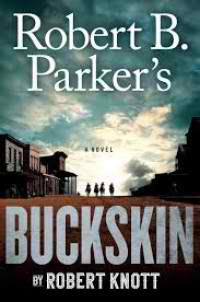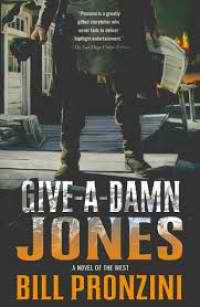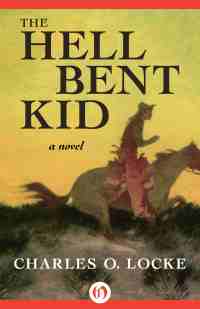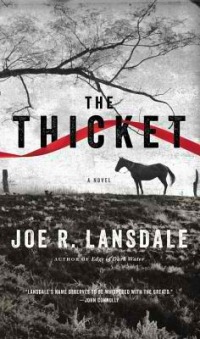Buckskin by Robert Knott
 Wednesday, May 8, 2019 at 7:21AM
Wednesday, May 8, 2019 at 7:21AM 
Published by G.P. Putnam's Sons on May 7, 2019
More Cole/Hitch westerns have been written by Robert Knott than by Robert B. Parker, who originated the characters. Parker is long dead but his name still appears more prominently on the cover of Buckskin than Knott’s. Go figure. The full title of the novel is Robert B. Parker’s Buckskin, but it really isn’t Robert B. Parker’s. In any event, I don’t know that Parker would be happy to have his name attached to Buckskin.
A dispute between the McCormick brothers and the Baptiste Group over gold mining rights brings Marshal Virgil Cole and Deputy Marshal Everett Hitch to the hills outside of Appaloosa. The McCormicks bought land from Baptiste and discovered gold, leading to the suspicion that the McCormicks knew about the gold before they bought the land. Baptiste finds gold on his adjacent land and both sides are working claims when a hand hired by the McCormicks disappears. Cole investigates but he’s more interested in keeping the lid on a potential feud than in the fate of expendable workers.
Eventually someone with money dies and Cole and Hitch become involved in a murder mystery, a task for which they are not well suited. The story is heavy on dialog along the lines of “You don’t scare me none” and “I aim to make things right.” Some of the dialog, like “Do not make a move or I will drop you,” is stilted; most of it is just clichéd. Quite a bit of the dialog is unimportant drivel that stretches out the story without adding substance to it. None of it leaves the impression that Cole and Hitch have enough collective brainpower to light a candle, much less solve a murder.
A parallel story tells of a murderous young man who is on his way to Appaloosa to find his mother. Along the way he encounters a woman whose husband doesn’t mind her interest in sleeping with him. That story has a vaguely supernatural feel (the woman apparently sees things that other people don’t, including things that have not yet happened) and she gets the young man high on various mind-altering drugs so she can steer him on a journey that will serve her purposes. Since the subplot’s destination is not apparent from the beginning, it holds more interest than the main plot, which essentially has Cole and Hitch shooting bad guys until they shoot the right one.
Hitch and Cole might be the two most boring heroes in the history of westerns. One of them comments about something obvious and the other one invariably agrees. A book that consists largely of dull conversations isn’t what fans expect from westerns. The reveal of the murderer is less than surprising. While the story of the young killer in search of his mother and his manipulation by the woman who drugs him is more interesting, its ending is predictable. Neither story creates tension, a flaw that is deadly in a western.
NOT RECOMMENDED


